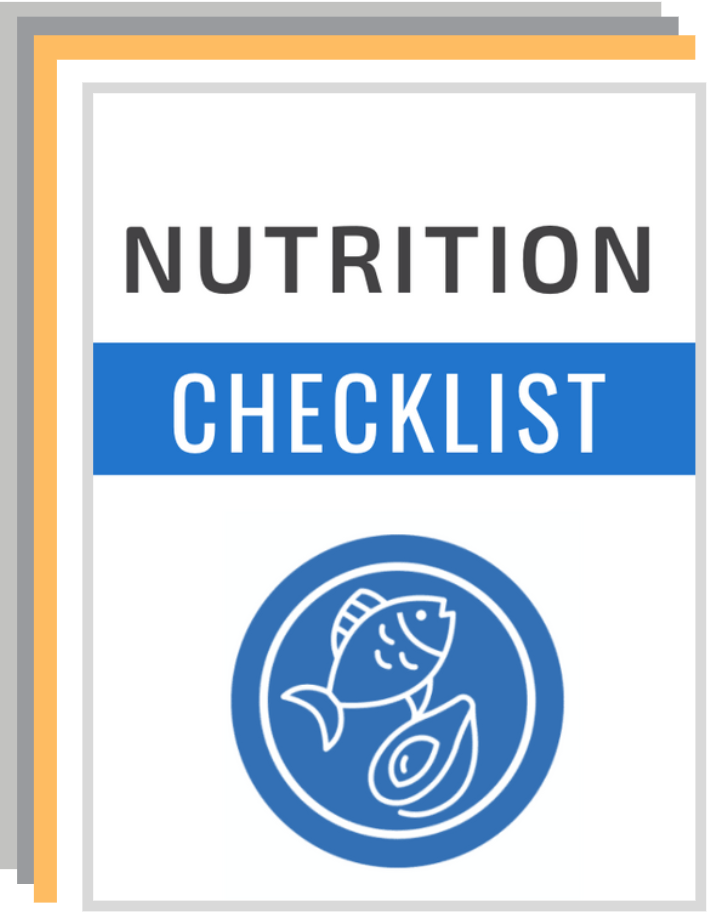The quality of your nutritional choices makes all the difference in the way your brain functions.
This Brain Fitness Checklist provides some suggestions to get you started and have been chosen because they have shown the biggest impact on improving a particular lifestyle factor. Identify one or two tips from the list to get started. Then slowly try new ones, as you work toward building brain healthy lifestyle habits.
Here are few ways to improve your nutrition choices…
Start here:
Add 2 new anti-inflammatory foods to your diet. Read this list and this article.
Drink 2 more glasses of water a day than you normally do.
Replace one fast food meal a week with a home-prepared meal.
Add one helping of fish to your diet weekly.
Try to replace sodas or sports drinks with water or seltzer.
Substitute fruits for dessert at least one night a week.
Prepare easy-to-grab brain-healthy snack foods in packages for one week.
Replace butter or margarine with olive oil for one week, then try for two weeks.
Challenge yourself more:
Reduce alcohol consumption to one drink per day.
Read food labels when you shop. Avoid foods/beverages with high sugar, salt, dyes, or processing.
Drink purified water that is free from chemicals and heavy metals like aluminum, lead and mercury which all have a negative effect the on human brain.
Eat fish twice a week.
Reduce your intake of lean red meat (beef, pork, lamb) to 2-3 times a week.
Eat vegetables with each main meal for a week, especially leafy green vegetables (such as spinach, lettuce, and kale).
Eat 2 servings more of fruits, especially berries for a week.
Eat 2 servings more of legumes (beans, peas, chickpeas, and lentils) a week.
Replace white breads and pastas with whole grain breads and pastas for a week.
Include only a small amount of dairy, focusing on yogurt and cheeses, in your daily diet for a week.
Learn more about nutrition and brain health; take the 1 hour course and get access to your personal nutrition toolkit. (Log into your Brain Health Vital Signs dashboard to access this course).
Tips for getting started
Brain health challenges in the “start here” section are designed to be implemented by anyone, and will be a great starting point, especially if you scored in the Could Improve or Need to Improve categories in a specific lifestyle factor. Other challenges might be a little harder to do. In fact, you might feel resistance about adopting them at first because you may know they will be difficult to maintain for a long time.
Once you have tried 2 or 3 successfully from the “start here” section, challenge yourself with the additional challenges below. Learn more about nutrition and brain safety; take the 1 hour course and get access to your personal toolkit.


